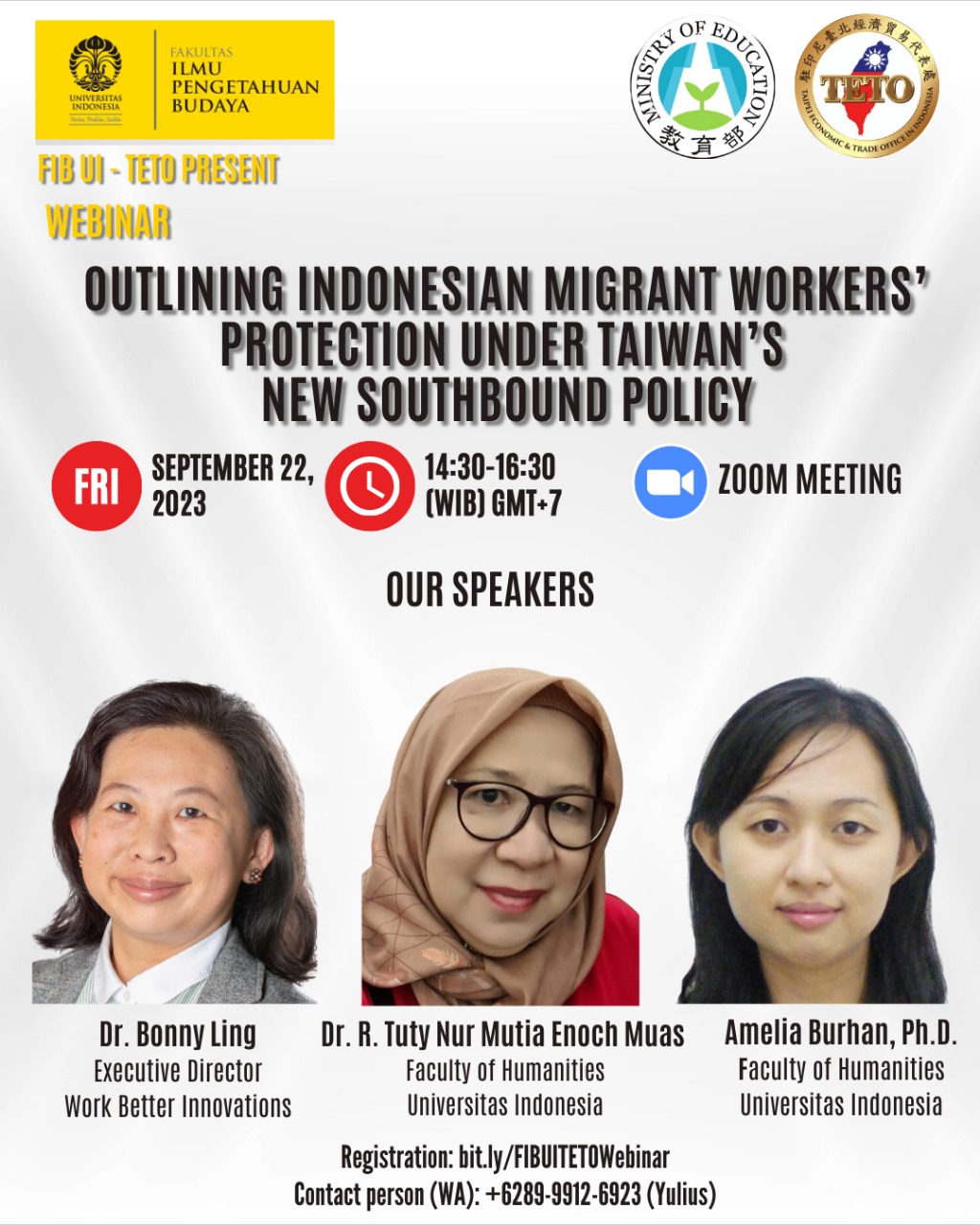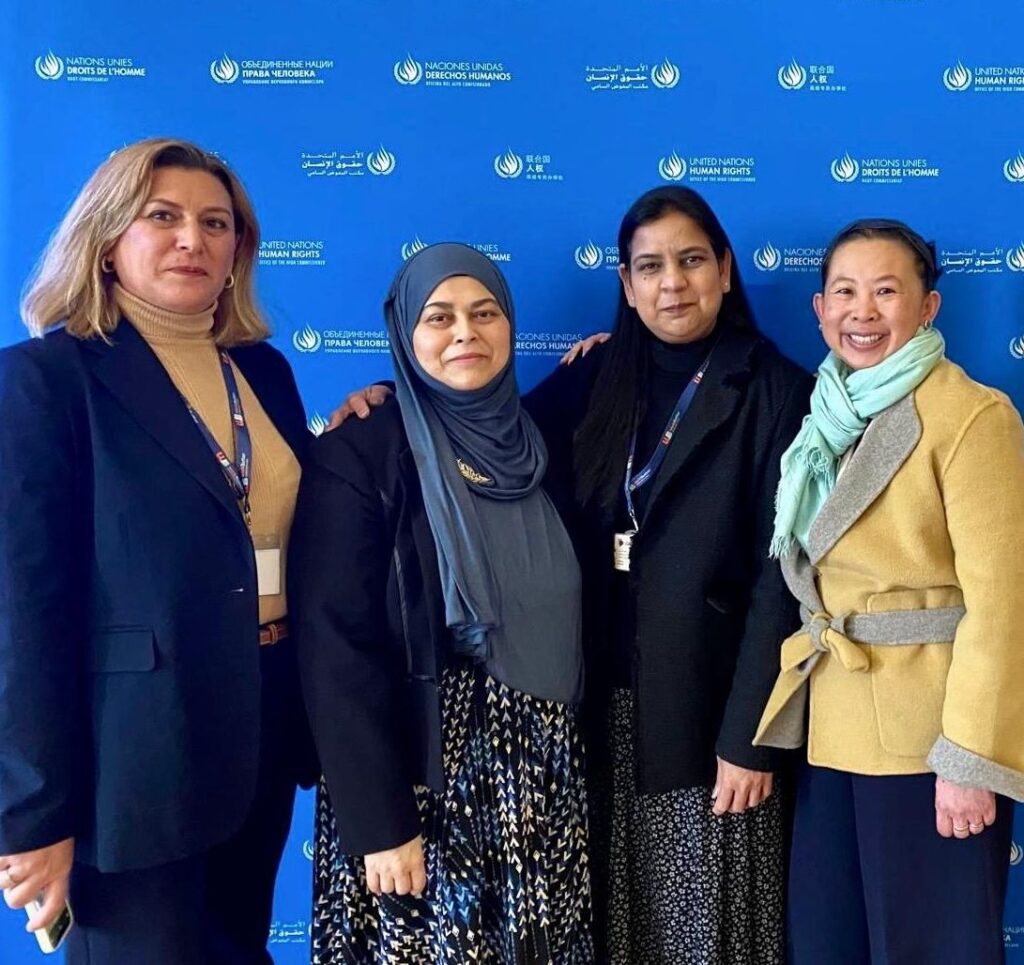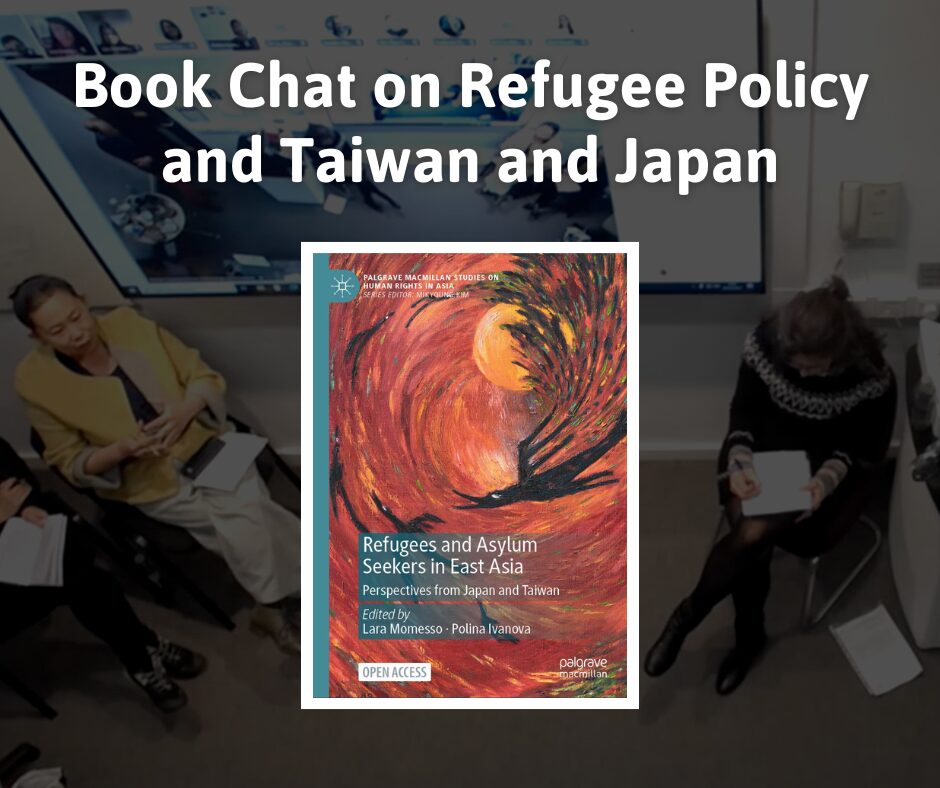22 September 2023. WBI’s Executive Director Dr Bonny Ling spoke on the panel “Outlining Indonesian Migrant Workers’ Protection Under Taiwan’s New Southbound Policy” webinar organised by Universitas Indonesia in collaboration with Taiwan’s Ministry of Education and Taipei Economic and Trade Office in Indonesia. Her talk focused on “Embedding of Legal Protections for Migrant Workers in Taiwan’s New Southbound Policy.”
Taiwan’s New Southbound Policy (NSP) was introduced in 2016 to strengthen Taiwan’s relationship with the Indo-Pacific region. The policy seeks to forge an alliance based on a “sense of economic community” and a “consensus of cooperation” with the 18 nations identified by Taipei as potential partners, including the member states of ASEAN, 6 states in South Asia, plus Australia and New Zealand.
In the absence of formal diplomatic ties, The NSP favours the cultivation of ‘people-to-people ties’ to link trade, economy, education and research in the broader development of the Indo-Pacific area.
Part of the ‘people-to-people’ strategy adopted by the NSP is to better facilitate labour migration, and this was addressed by Dr. R. Tuty Nur Mutia Enoch Muas and Dr. Amelia Burhan in their presentation, titled “Dismantling Indonesia’s Opportunity to Send Smart and Protected Migrant Workers under Taiwan’s New Southbound Policy.”
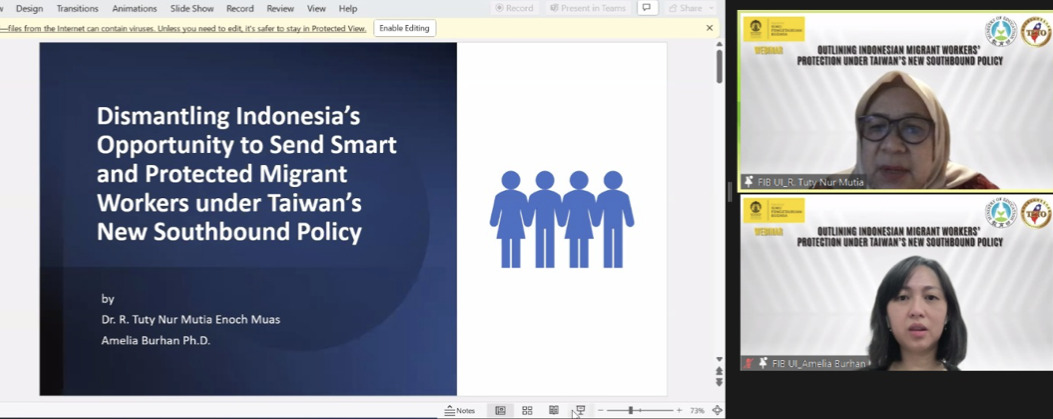
[Screenshot of Dr. R. Tuty Nur Mutia Enoch Muas and Dr. Amelia Burhan’s presentation]
Dr Ling’s talk highlighted that out of Taiwan’s four main migration corridors (from Indonesia, Thailand, the Philippines and Vietnam), there are 264,391 Indonesian migrant workers out of a total number of 745,696 registered migrant workers in Taiwan, as of August 2023.
Amongst the Indonesian migrant workers in Taiwan, close to 70 percent of them are employed in the social welfare sector, which include the domestic care and institutional care facilities.
The Labour Standards Act, Taiwan’s most important employment-related statute that sets out basic labour protections, however, does not cover domestic workers. This affects Indonesian women migrant workers, who are heavily represented in Taiwan’s domestic care sector.
Dr Ling’s presentation questions whether the persistent exclusion of domestic care migrant workers from basic labour protection is a continuation of the discrimination faced by women in the family setting, underscored by the longstanding invisibility of a woman’s labour in familial settings.
Another problem on the legal protection of migrant workers in Taiwan concerns labour recruitment practices, where low-waged migrant workers are expected to bear the cost of their job placement fees and related costs. For a job in Taiwan, this would include a monthly service fee that migrant workers pay to their labour brokers in Taiwan – a practice that is unique to Taiwan.
The charging of recruitment fees and related costs placed on the workers contributes to risks of forced labour as it can heavily indebt the workers and leaves low-wage workers vulnerable to human trafficking and exploitative labour.
Recruitment of migrant workers in Taiwan and elsewhere must move to adoption of the ‘Employer Pays Principle’, where no worker should pay for a job, across all industries. It is fundamental to combatting exploitation, forced labour, and trafficking of migrant workers. Cost of recruitment should be borne by the employers and not the workers.
“While the Employer Pays Principle’ is an easily understood principle, the current labour recruitment system has been in place for decades, where employers do not properly pay for the costs of recruitment. Therefore, it is difficult to change. But this system is not just.” – Dr Bonny Ling
Which brings us back to the start of Dr Ling’s presentation and the importance of ‘People-to-People’ diplomacy. We saw this directly in action during COVID spike in Taiwan in the summer of 2021, when a statement conveying solidarity with migrant workers was issued by local groups and shopkeepers. The statement protested against the restrictive movement measures imposed by Miaoli County onto its migrant labour force, without basis in law or on advice of public health authorities.
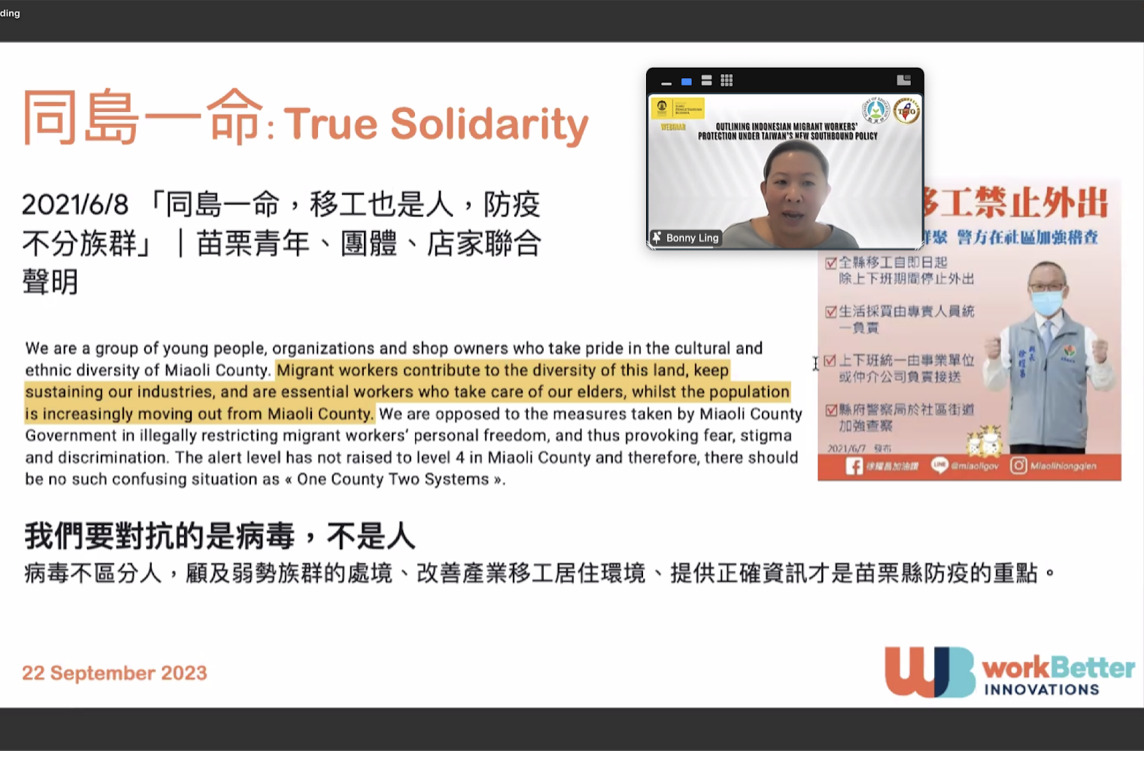
[Screenshot of Dr Ling’s presentation featuring an abstract from the statement by local groups and shopkeepers in Taiwan’s Miaoli County in solidarity with migrant workers]
The statement affirmed the benefits of migration and the valuable contributions that migrant workers make to local society. In addition to grassroots campaigning, academic discourse opens up more opportunities of solidarities based on accurate knowledge sharing and rigorous studies.
For real change to materialise and to secure Taiwan’s position as a global leader in the realm of human rights, there needs to be coordinated efforts from all sectors, bringing business, academia, advocacy groups and policy-makers into active dialogues – as originally envisioned by Taiwan’s New Southbound Policy to realise the full potentials of people-to-people diplomacy.

